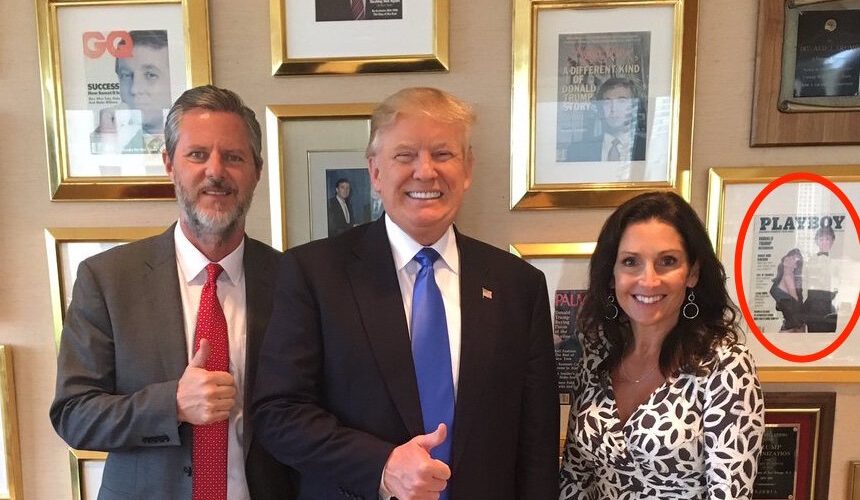So thankful that @Barnagroup allows me such access. Great insights to be gleaned.
Younger people view evangelicals in basically the same way as their parents. But the age group that has the most negative feelings about evangelicals are the oldest Americans https://t.co/T0e3Cb86p7 pic.twitter.com/CPAeTNltdL
— Ryan Burge 📊 (@ryanburge) December 4, 2019
If you follow top-tier American media, you know that retired Anglican Bishop N.T. Wright is in the news right now. This is the kind of thing that happens when British intellectuals come to the United States to promote their new books.
Wright is a theologian known around the world as an apologist for a traditional, ecumenical brand of Christianity, to the point that some have said that his pew-level apologetics can be compared with C.S. Lewis.
So what’s are the hot topics for Wright, as he tours in support of his new book, “The New Testament in Its World”?
Wait for it.
Well, have you heard that 81% of white evangelicals in American just love Donald Trump? And that American evangelicalism is in a state of crisis?
With all of that in mind, let’s make this an N.T. Wright weekend, with some “think piece” input from two religion-beat professionals who will be ultra-familiar to GetReligion readers — Sarah Pulliam Bailey of The Washington Post and Emma Green of The Atlantic.
So Bailey’s breakfast Q&A ran with this headline: “ ‘A wakeup call:’ British theologian N.T. Wright on the prosperity gospel, climate change and Advent.” Here’s a sample:
Q: How do you compare Brexit and Trump, and how British Christians understand American evangelical support for Trump?
A: The same sort of movement propelled both events. With Brexit, we did not see the white evangelical support Trump had. The churches are probably divided. They’re probably mostly Remainers [who wanted Britain to remain in the European Union].
In Britain, the word “evangelical” doesn’t mean what it means in America. If you say evangelicals are like the white working-class communities who voted for Brexit because they felt they were unheard, people understand. It’s like, finally, somebody gave them a chance to say, ‘Hang on, what about us?’ Neither America nor Britain has figured out how actually what we call religion and what we call politics might work together.
Green’s Atlantic piece ran with this double-decker headline:
The Crisis of American Christianity, Viewed From Great Britain
The theologian N. T. Wright is unfazed by the faith’s politicization in the U.S.
In introducing Wright to new readers, Green noted:
Wright, 71, does not fit neatly into the oversimplified categories often used to describe American Christianity: liberal versus conservative, mainline versus evangelical. Over his career, he has won the admiration of those who follow what they describe as orthodox teachings, but he has also called on Christians to more actively seek out opportunities to lift up the poor and the marginalized. In addition, he’s quite familiar with the religious and political environment of the United States, having spent significant time in the country over the years. But while Wright is ultimately a foreign observer from across the pond, the problems he sees in America are distinct but not altogether dissimilar from the problems he sees in Britain: He believes most people have no framework to help them navigate a time of political turmoil and division. Without the guiding story of Christianity, he says, conflict and moral confusion proliferate.
Skipping over the Trump-era question for a moment, here is a crucial moment of dialogue, with Green asking Wright if many American “evangelical” leaders are be driven by their fears of what is happening in their culture. This is turning off many young Americans.
Thus, it’s quite obvious — look at this week’s Ryan Burge graphic at the top of this post — that there is conflict going on right now between generations, conflict that is more complex than the numbers seen in many news reports.
So let’s go back to Wright and Green:
Wright: That’s a good question. I do not know. … There is fear, because some huge cultural imperatives can’t fit with the Church’s traditional teaching.
Green: What cultural imperatives are you talking about?
Wright: Well, one would name the LGBT agenda. For 2,000 years, Christian, Jews, and Muslims — Muslims for less than 2,000 years, but you know what I mean — have just said, That’s not what we think a human life is all about. Suddenly, we have a cultural imperative [to embrace LGBT identity] coming in the last 30 years or so. That’s quite an extraordinary thing.
Green: I think the LGBT issue is a major tension point in people’s perceptions of Christianity, or at least conservative expressions of it. On this issue, people seem to feel that Christianity’s messages are primarily about judgment and condemnation.
Wright: In the early Church, one of the great attractions of Christianity was actually a sexual ethic. It is a world where more or less anything goes, where women and children are exploited, and where slaves are exploited often in hideous and horrible ways. In the Greco-Roman world, if you’d already had one daughter, and then you had another, the regular thing was either to sell her into slavery or literally to leave her out for the wolves.
So a lot of people, particularly the women, found the Christian ideal of chastity amazingly refreshing.
But does that speak to the young today, even those who are serious about religious faith?










